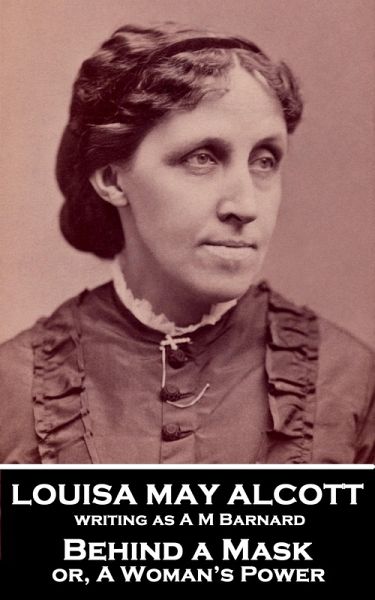
Behind a Mask or, A Woman's Power (eBook, ePUB)
"Love is a great beautifier"

PAYBACK Punkte
1 °P sammeln!
Louisa May Alcott was born on 29th November 1832 in Germantown, Pennsylvania.She is most definitely a writer of her own experiences. Her father was a transcendentalist, philosopher and educational experimenter who founded, Fruitlands, a utopian community. Although poor, her liberal and progressive parents provided Louisa with much of her education, which was enhanced by many family friends that included Thoreau, Hawthorne and Emerson, a neighbour whose library she was often found reading in.She started writing stories as a way of providing the family with some financial stability. Times were d...
Louisa May Alcott was born on 29th November 1832 in Germantown, Pennsylvania.
She is most definitely a writer of her own experiences. Her father was a transcendentalist, philosopher and educational experimenter who founded, Fruitlands, a utopian community. Although poor, her liberal and progressive parents provided Louisa with much of her education, which was enhanced by many family friends that included Thoreau, Hawthorne and Emerson, a neighbour whose library she was often found reading in.
She started writing stories as a way of providing the family with some financial stability. Times were difficult and the effects of poverty were always close at hand. During the Civil War she went to Washington to be a nurse and became ill with typhoid fever although she continued to write and build her success. However, the treatment for typhus gave her mercury poisoning which caused further health issues for the rest of her life and eventually contributed to her death.
Alcott visited her father on his deathbed in Boston. Two days later on 6th March 1888 she also died resulting in a joint funeral.
Well-loved for her classic 'Little Women' she was a superb writer in difficult times for any woman, a strong advocate of women's issues, the anti-slavery movement, temperance and social reform.
Her work often reflects on the rich experiences in her life and this short story is one of dozens of gothic thrillers, sensation stories and detective fiction that stretched her literary talents and was written under one of her pseudonyms A M Barnard that allowed her to explore areas that would be commercially difficult under her own name. She is also famed for her children's stories.
<
She is most definitely a writer of her own experiences. Her father was a transcendentalist, philosopher and educational experimenter who founded, Fruitlands, a utopian community. Although poor, her liberal and progressive parents provided Louisa with much of her education, which was enhanced by many family friends that included Thoreau, Hawthorne and Emerson, a neighbour whose library she was often found reading in.
She started writing stories as a way of providing the family with some financial stability. Times were difficult and the effects of poverty were always close at hand. During the Civil War she went to Washington to be a nurse and became ill with typhoid fever although she continued to write and build her success. However, the treatment for typhus gave her mercury poisoning which caused further health issues for the rest of her life and eventually contributed to her death.
Alcott visited her father on his deathbed in Boston. Two days later on 6th March 1888 she also died resulting in a joint funeral.
Well-loved for her classic 'Little Women' she was a superb writer in difficult times for any woman, a strong advocate of women's issues, the anti-slavery movement, temperance and social reform.
Her work often reflects on the rich experiences in her life and this short story is one of dozens of gothic thrillers, sensation stories and detective fiction that stretched her literary talents and was written under one of her pseudonyms A M Barnard that allowed her to explore areas that would be commercially difficult under her own name. She is also famed for her children's stories.
<
Dieser Download kann aus rechtlichen Gründen nur mit Rechnungsadresse in D ausgeliefert werden.



